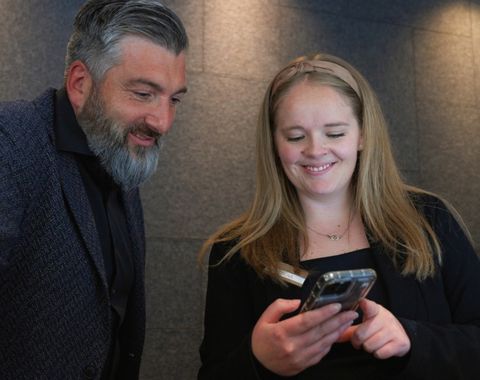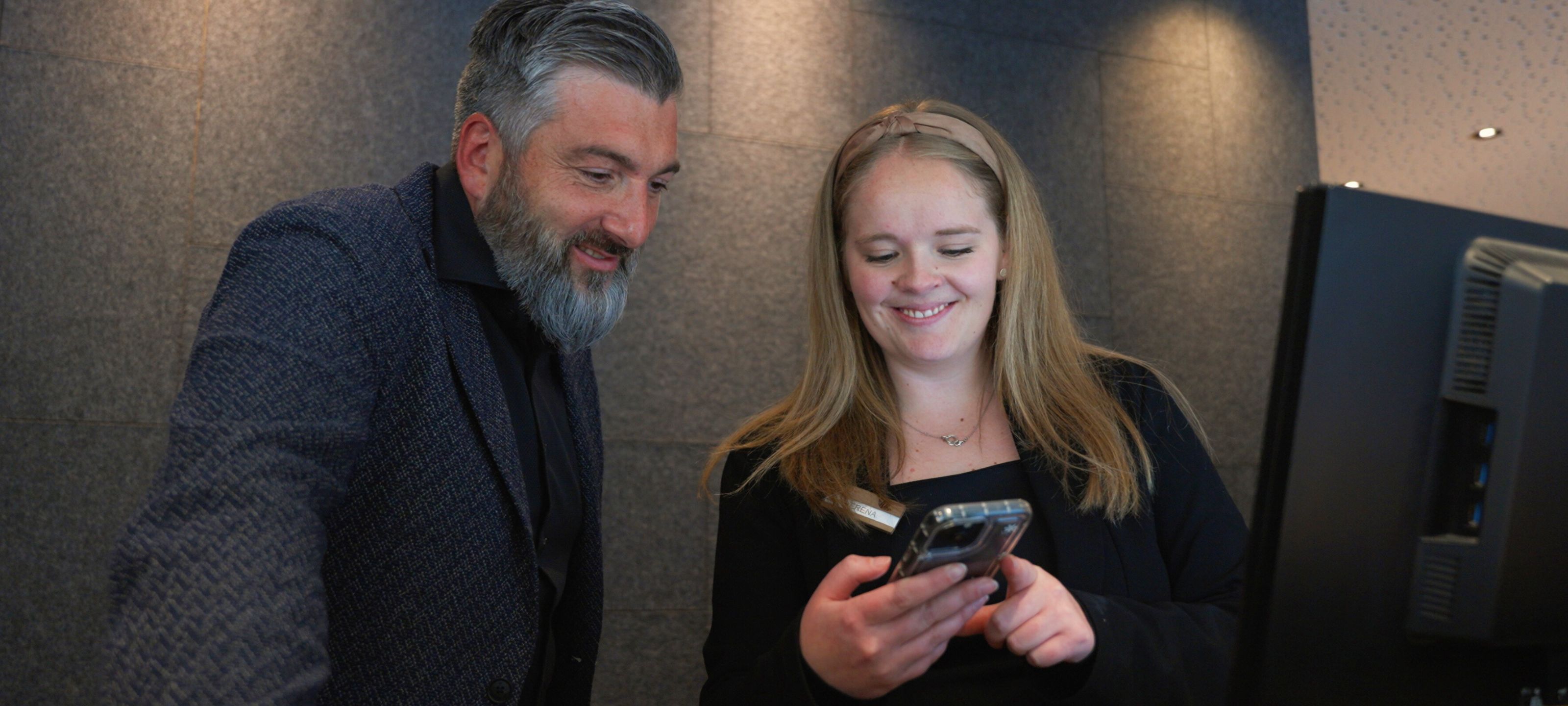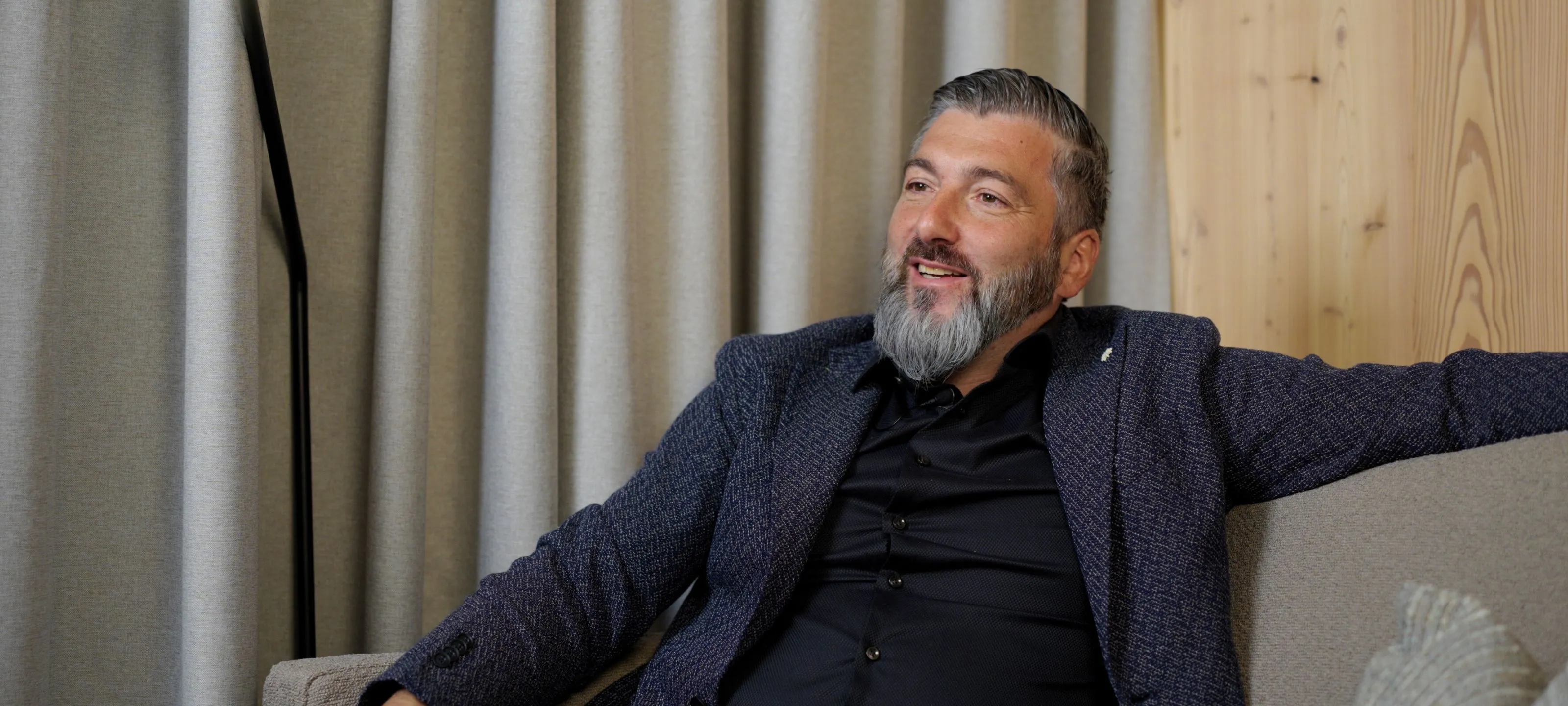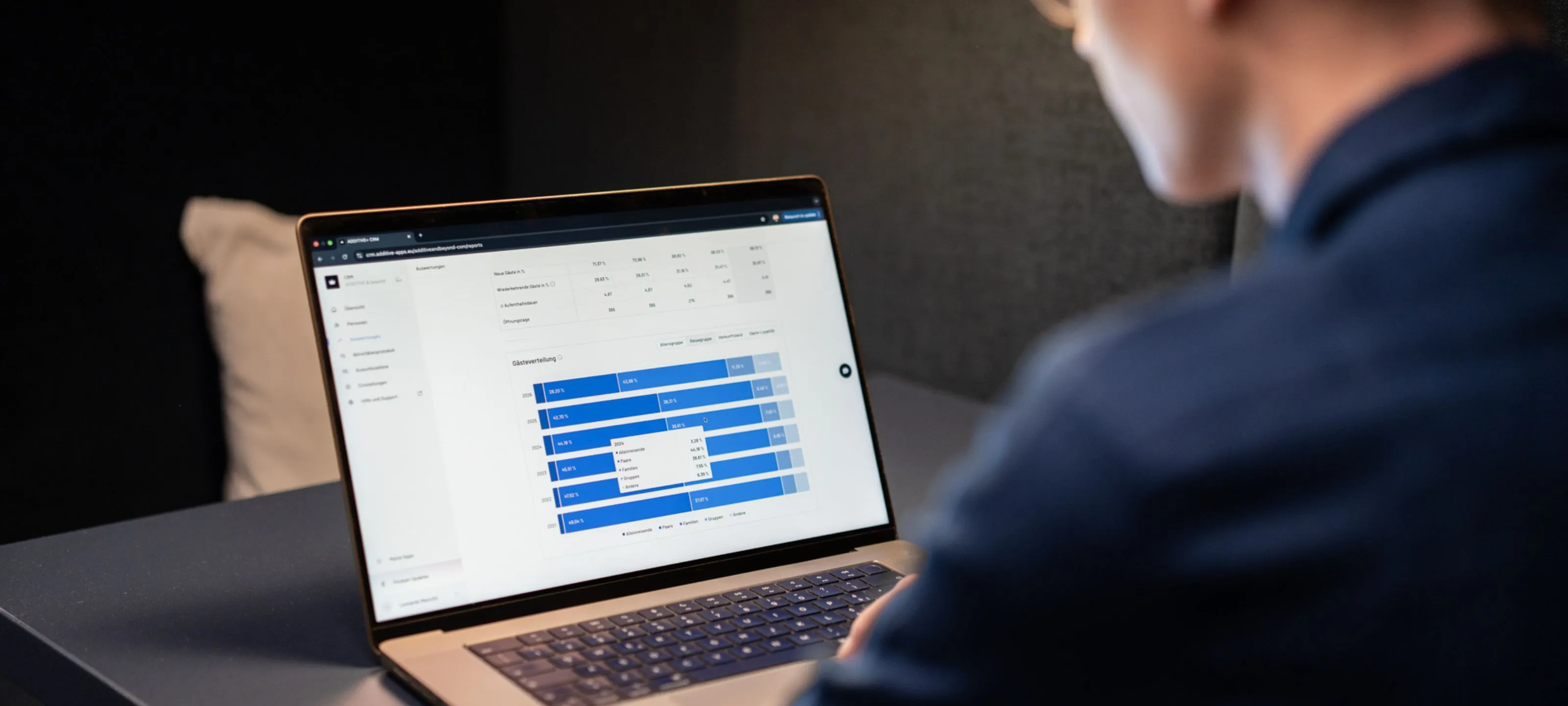
In Conversation with Stephan Hein, Lulu Guldsmeden Berlin

Stephan Hein, Managing Director of Lulu Guldsmeden in Berlin, shares his insights in the interview on the hotel's digital transformation and how modern online marketing strategies ensure the success of this unique design hotel.
<div class="article_quote"><div class="article_quote_contain"><div class="article_quote_quote">"It is crucial for hotel marketing to collect more and, above all, the right data in order to launch efficient sales marketing or promotions."</div><div class="article_quote_name u-text-style-main">Stephan Hein</div></div></div>
Stephan Hein has been general manager of Lulu Guldsmeden Berlin since summer 2019, where he is responsible for 81 rooms and 13 employees. Hein gained his most relevant professional experience to date at Rocco Forte Hotels, The Grove in Hertfordshire/London, Design Hotels AG and Eco Hotels.
The Lulu Guldsmeden in Berlin's Tiergarten/Mitte is the only German branch of the Danish boutique hotel chain Guldsmeden Hotels, which, in addition to a unique visual concept, has been implementing the themes of sustainability and environmental protection for years. Read more in the Innovative Concepts section.
Digital Marketing at Lulu Guldsmeden
<h3 class="interview-question">How important is digital marketing for Lulu Guldsmeden?</h3>
The importance of digital marketing is growing all the time - until now it has not been a core focus for Guldsmeden Hotels. We have a very playful, graphically visual approach to marketing (note: just look at the website). First and foremost, we need to create the basic conditions for digital sales marketing, namely to ensure a clear focus on our website. On the original website, many users did not understand that this was a hotel. The current, revised version still has room for improvement, especially in terms of usability. We start with photos of a family with family bicycles, followed by our family-friendly loft rooms...
<h3 class="interview-question">So families are the main target group?</h3>
Exactly, families are very important to us. To give you an idea, before the pandemic we had up to 1,000 children in the house during the school holidays. Even recently, with 50% occupancy, we've had up to 560 children a month. That is why the positioning of the pictures is very clear: no classic superior rooms to start with, but only those that show the core and the atmosphere of the hotel.
.webp)
<h3 class="interview-question">What opportunities and risks do you see in digital sales marketing?</h3>
The opportunities are obvious: you get better, you get faster and you can react more immediately. We are currently working with Google Ads, with keyword advertising (search engine marketing for hotels): however, we started with Google Hotel Ads at a time when it was difficult to achieve really good figures. However, the time was well spent, we were able to learn from it and now we know what terms are being searched for.
On the subject of risk, I think it's important to note that as a hotelier you run the risk of focusing too much on the digital world, which is very fast moving, instead of focusing on the guest who is right in front of you. We here in Berlin are part of the Danish chain, but we are already decoupled from the head office because of the language. This means that we can act relatively autonomously. We are in the process of increasing our social media staff and want to focus more on digital communication. The aforementioned website has been analyzed in detail, and we know from guest surveys, for example, where there are problems and what works well.
<h3 class="interview-question">Do many hotels see a risk in spending money because, unlike OTAs, SEA or social media advertising is not measurable?</h3>
Absolutely, this is a clear advantage of OTAs: thanks to a super efficient BI tool (business intelligence software for analyzing and processing internal and external systems), as a hotelier you have perfect reporting including presentation on an ongoing basis. Any booking engine (including our own, which is programmed internally in many chains) has a hard time compared to booking.com, for example: a fixed part of their turnover is invested in the constant optimization of the tool itself to allow easier and faster bookings.

.webp)


From Google Ads to Social Media
<h3 class="interview-question">What is your current digital marketing mix? You mentioned Google Ads, what other platforms are you actively using and advertising on?</h3>
Exactly, in addition to Google Hotel Ads, we play Facebook, Instagram and LinkedIn with social media ads as part of hotel marketing social media. Right now (note: interview was conducted in September 2021) we are looking at starting with TikTok. Reels are a big topic for us, especially for our main target group of families with teenage children. We sporadically work with selected Youtubers or influencers.
<h3 class="interview-question">Does newsletter marketing play a role in the marketing mix?</h3>
I have to admit that at the moment we use it on a very limited basis for the simple reason that we don't have an accurately maintained database. And without good contact data, efficient email marketing with a focus on hotel newsletters is hardly possible. I'd like to see a really well-functioning CRM tool ...., especially to be able to track the measurability of direct bookings from marketing activities. At the moment it's just extremely laborious and time-consuming.
<div class="article_quote"><div class="article_quote_contain"><div class="article_quote_quote">"Therefore my order and constant call to my reception staff: Carefully check the database! "</div><div class="article_quote_name u-text-style-main">Stephan Heim</div></div></div>
<h3 class="interview-question">Data is the gold of the digital age. Do you see marketing potential in using guest and reservation data, as well as collected guest information and affinities?</h3>
This topic is very relevant, segmentation of data, filtering of data... We have been working in this area for two years with targeted pop-ups based on IP addresses, different vacation periods in different countries and regions, and based on historical bookings. To do this, we analyzed our core markets: In Switzerland, for example, the fall vacation starts a week before ours here in Germany. As a result, these users receive a special "Gruezi PopUp" instead of a "hello. For high-priced suite bookings, thank you PopUps with small goodies follow, these are just two examples.
I'm a big proponent of targeting: sometimes I wonder why it doesn't work on YouTube - the platform knows everything about me as a person, but plagues me with lady shaver ads. For hotel marketing, it is crucial to collect more data, and the right data, to be able to launch effective sales marketing or promotions. If a guest has stayed at a Guldsmeden in Copenhagen, I need to get him to stay here in Berlin. Therefore my order and constant call to my reception staff: Carefully check the database! Note whether it is a leisure guest, where he comes from, what he likes or dislikes.
<h3 class="interview-question">I think the city hotel industry in particular definitely needs to catch up here, and it's in times like these that that comes to the surface...</h3>
We already had 60% leisure business before Corona. All city hotels that were focused on business travelers suddenly want to focus on that as well. But it's not that easy to change from one day to the next. I like to compare it to navigating a big ship; changing direction doesn't work in a jiffy. I honestly have respect for the properties with 500 hotel rooms and lots of event space, that's where the recovery will take time.
<div class="article_quote"><div class="article_quote_contain"><div class="article_quote_quote">"We have a manageable size and the USPs that people are looking for right now: personal contact, appealing design with different materials, and sustainability."</div><div class="article_quote_name u-text-style-main">Stephan Heim</div></div></div>
<h3 class="interview-question">So you see hotels like Lulu Guldsmeden as having a clear advantage, what are the USPs?</h3>
On the one hand, we have a manageable size and the USPs that people are looking for right now: personal contact, appealing design with different materials, and sustainability. We are strongly positioned as a group on the subject of environmental protection, but we don't just use the word from a marketing point of view; we live sustainability. Since 1995, Guldsmeden Hotels has exclusively sourced organic products. But the theme of sustainability runs through from A to Z: in care products, our own vegan cosmetics line with recyclable packaging, mattresses made of organic rubber, towels made of fairtrade cotton. The topic is simply very relevant and has played well into our hands, especially recently, even in the event area with about 5- 20 people, it now comes to bear.
Sales Successes at Lulu Guldsmeden Hotel
<h3 class="interview-question">Still, how much do you rely on OTAs like booking.com, expedia.com, etc. for distribution?</h3>
OTAs are an important part of distribution, although not as important as a few years ago.
In fact, the Lulu Guldsmeden has a monopoly position in our chain because it is the only one of the 11 hotels that is distributed through traditional OTAs. All the others are completely open and neither on the aforementioned booking.com nor on expedia.com. The exciting thing is that all the hotels are doing better without OTAs than before. All the distribution is through ecohotels.com and even our own distribution. But every country works differently, we see massive differences in the look and feel of the OTAs in different countries, or in sub-products that are more successful in some places, perhaps due to factors like color or other visual elements.
<div class="article_quote"><div class="article_quote_contain"><div class="article_quote_quote">"I see booking.com more as a billboard than as a partner to draw attention to us."</div><div class="article_quote_name u-text-style-main">Stephan Heim</div></div></div>
<h3 class="interview-question">Can you give us a percentage?</h3>
Since I've been here, we've been able to reduce our dependence on booking.com by 27% and are now at a 40% share. We've gained primarily in direct self-distribution, via email, phone, front desk and our own website. The goal should not be to get rid of OTAs completely. I see booking.com more as a billboard, as a partner to draw attention to us. Already about 70% of booking.com users look at the hotel's own website, so that's where I want to start and get from 40% to 30%. We will then invest the money we save directly in our own website, which is all about attracting potential guests and convincing them of our product. Today, travelers can sleep in hotels, they can dress themselves, they can interact with others - that has become more important than ever. That doesn't work on OTAs.
<h3 class="interview-question">For a hotel in Berlin with about 80 rooms, the booking.com share is surprisingly low... What do you think is the reason?</h3>
Actually, in the first few months we were at 75%, with peaks of 87%, but there was no active distribution at that time. The area has developed a lot, within two years there are 3 Michelin star restaurants, trendy bars and galleries. Another factor is certainly the higher percentage of German guests, 45% at that time. In July this year, for example, we had more Danes than Germans in the house, simply because the level of awareness there is extremely high.
<div class="article_quote"><div class="article_quote_contain"><div class="article_quote_quote">"It is important to use only the truly relevant data."</div><div class="article_quote_name u-text-style-main">Stephan Heim</div></div></div>
<h3 class="interview-question">Finally, the topic of data, i.e. guest and reservation data, and the use of (automated) hotel systems: What projects are you pursuing here?</h3>
I think we need to first understand the data, then manage it properly, then process it and learn from it. For retail, I think a combination of a CRM and an RMS tool, or even a PMS tool, is relevant. Due to the Corona crisis, there is a new booking behavior of travelers. Travelers want “fully flexible” rates: where we used to have 80% prepaid reservations, we are now at 20%, slowly improving.
Guests are arriving at very short notice, even as families: we have had days when several families with toddlers and babies have booked for the same day! In the future, a reliable revenue manager, closely linked to CRM, will be crucial: a 5% increase in the room rate may sound trivial, but in times like these, it is worth its weight in gold. And you are not able to analyze and react as fast as a good algorithm. It's about using the really relevant data.







.jpg)

.jpg)



.webp)
